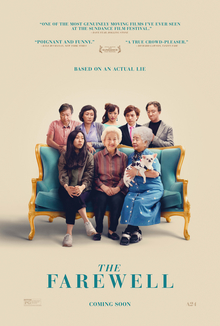This week I had a dinner with my longtime friend Janusz and his family from Poland. Between Janusz and me, English is both our second language. We communicate in English like it is our mother tongue. As Confucius said, what a delight to greet friends from afar! My Polish friends were here to sightsee Washington.
With its good location near the White House and the Treasury Department, the Old Ebbitt Grill always greets streams of patrons from at home and abroad all year round. My reservation saved us time from waiting. We were seated in a booth as soon as we checked in at the door. I sat on the extra chair by the table. On my left are seated Janusz and his daughter Beata who both speak English; on my right, Janusz’s wife Mal and my other-half AZ, both of them are monolingual–Mal speaks very little English, AZ speaks no Polish.
A stout, bearded and bespectacled waiter, in his mid-forties, and in his white uniform, introduced himself Wojciech–a name so foreign that it’s easier for me to forget than to remember. I only learned the spelling of his name after the meal from the printed receipt. Thank god for the receipt!
Wojciech understood his clientele: the rich and powerful politicians, the spendthrift tourists, or the curious first-timers. The minute he brought us menus, he began his pitch, from the cheese and oyster menu to the wine list, from sigature appetizers to the chef’s recommendations, and at last, he sophisticatedly left us a quiet moment for decision making.
“Oh,” Mal exclaimed in accented English, looking at the long menu, “I need translation!”
We all looked at Beata who sat across from Mal when Janusz and I were busy catching up in English. Mal looked happy as she listened to Beata speaking Polish to her.
Moments later, Wojciech returned and took our order. We all decided to order a bottle of Californian wine to share.
“Who are going to drink?” Wojciech asked cheerfully. He must be happy as his pitch hard earned a bottle of wine sold.
We raised our hands simultaneously like the ardent volunteers on a TV game show.
“Four,” Wojciech said after a quick glance at our raised hands, and wrote it down on his pad. He continued, “well, I need to see your IDs, young ladies.”
As Wojciech averted his eye to Beata with a commanding look, Beata submissively handed her foreign ID to him.
“B-E-A-T-A,” Wojciech gave a careful look at the ID and enunciated the name in the most authentic Polish sound, then the whole conversation was all Polish to me.
Mal and Janusz looked radiant as if a lightbulb in a dark room was lit at the most needed moment. Wojciech’s beard was alive on his face as he talked without punctuation. They were conversing in Polish back and forth, a lot of heavy-sounded consonants jumping to my ears.
“And you,” Wojciech said to me in English, faking a stern look behind his glasses. After I showed him my ID, he said teasingly, “Don’t worry, they’re all talking good stuff about you.”
I laughed, we all laughed. What are the odds that we were served by a funny Polish waiter when my dear friend Mal was lost in our English conversation moments ago?
AZ and I must have looked so lost, bug-eyed and quiet. Janusz came to our rescue. He translated for us after Wojciech patted his belly and left our table. It turned out our waiter was born and raised in northern Poland. He was very proud of his careers: he had served in the Polish army in the past and now he served in an American restaurant as a waiter. In his Polish expression, lepiej dla twojego żołądka, it’s better for your stomach.
As the evening went on, Wojciech returned a couple of times to check on us. Every time he stopped by our table, he did not forget to speak Polish to my Polish friends. Everyone was lightened up. As was Wojciech’s face. I saw his beard was dancing Krakowiak, the Polish folk dance, as he had the lively facial expression accompanying his Polish monologue to our guests. Was my vision under the influence after I sipped some wine?
“He must be really homesick for his mother tongue,” I said to Janusz after Wojciech left.
“He surely is,” Janusz responded, beaming.
We had a nice evening, a memorable one, indeed. Like my friend Janusz says, it’s serendipity that we met in America, not in Poland, not in China. And it’s a serendipity that we met Wojciech that night in the Old Ebbitt Grill, a restaurant that now left an impression to me because of its diversified staff: a Polish-speaking server, a Muslim receptionist with a headscarf, a biracial Asian American server who took our picture, Latin and African Americans staff members are common. This is an American restaurant, and this is the United States of America–a melting pot of races and cultures. Welcome to America, my Polish friends!
Wanna say something to me? Click here and thanks!


